
1. James Mackenzie: Better Spatial Planning Could Save Marine Ecosystems and Our Fishing Industry
Biodiversity is in decline, just as our fishing fleets are. This might look intractable if you see economy and environment as competing interests, but the circle can be squared.
The key is marine spatial planning: the act of allocating areas of sea for specific purposes is the basis of successful inshore fisheries and conservation policies globally.
Spatial management draws on detailed seabed science, using transparent processes to take account of competing interests and all relevant policy objectives. Oversight can be delivered through strong local governance, involving all stakeholders.
Spatial plans would separate low-impact creeling and hand-diving from high-impact dredging and trawling, reducing costly gear conflict between the fleets. Space would be allocated through HPMAs for nature restoration and stock recovery, alongside zones for renewables, low-impact only fishing areas that allow both high-value catches and ecological restoration, and existing MPAs would at last get management measures.
Thank you for your generous gift that will help us continue the production of this weekly, free publication
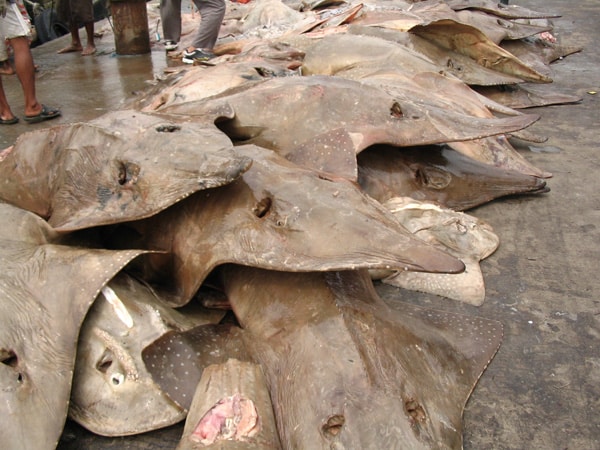
2. IUCN: Accidental catch can lead to shark extinction
A new report has highlighted the devastating impact of accidental catch on shark populations. The report, published by the International Union for Conservation of Nature (IUCN), warns that accidental catch, also known as bycatch, is pushing many shark species towards extinction.
Sharks are often caught by commercial fishing vessels that are targeting other species, such as tuna or swordfish. The report calls for greater regulation and enforcement of bycatch reduction measures to protect sharks and other vulnerable marine species. The IUCN warns that without urgent action, many shark species may be lost forever.
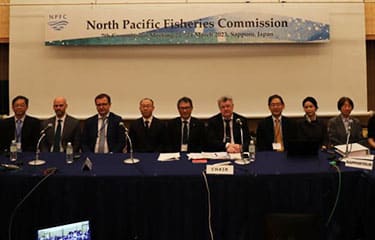
3. North Pacific Fisheries Commission tightens rules on transshipping, sets lower saury catch limit
The North Pacific Fisheries Commission (NPFC) has tightened its rules on transshipping and set a lower catch limit for saury. The changes aim to reduce overfishing and protect marine ecosystems in the North Pacific. Transshipping, the transfer of fish from one vessel to another, has been identified as a key area of concern for illegal, unreported, and unregulated fishing.
The new rules require greater transparency and accountability in transshipping activities. The NPFC has also set a lower catch limit for saury, a popular food fish in Japan, Russia, and other countries. The changes are expected to reduce pressure on saury populations and promote more sustainable fishing practices.
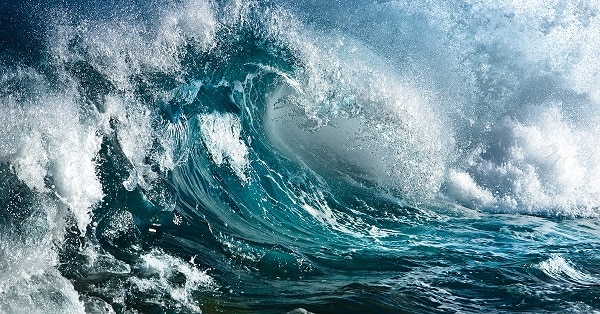
4. Morgan Stanley: Four Ways to Invest in a Sustainable ‘Blue Economy’
Tackling climate change, protecting biodiversity and fostering inclusive economic growth will require more than $3 trillion of investments in the world’s oceans in the coming decades.
The world’s oceans help mitigate some of the most severe effects of climate change. Not only do they absorb almost 90% of global warming emissions and produce half of the oxygen we breathe,1 they also drive economic progress and job creation.
Ocean-related industries generate $2.5 trillion of economic value globally and support almost 3 billion people’s livelihoods in industries including seafood, port construction and coastal tourism.2 Supporting a sustainable blue economy will require the continued participation of public and private funds, as well as philanthropic and non-governmental organizations.
The four largest areas for investment are: Decarbonizing the Maritime Industry, Marine Solutions to Protect Ecosystems , Marine Renewable Energy and Sustainable Aquaculture
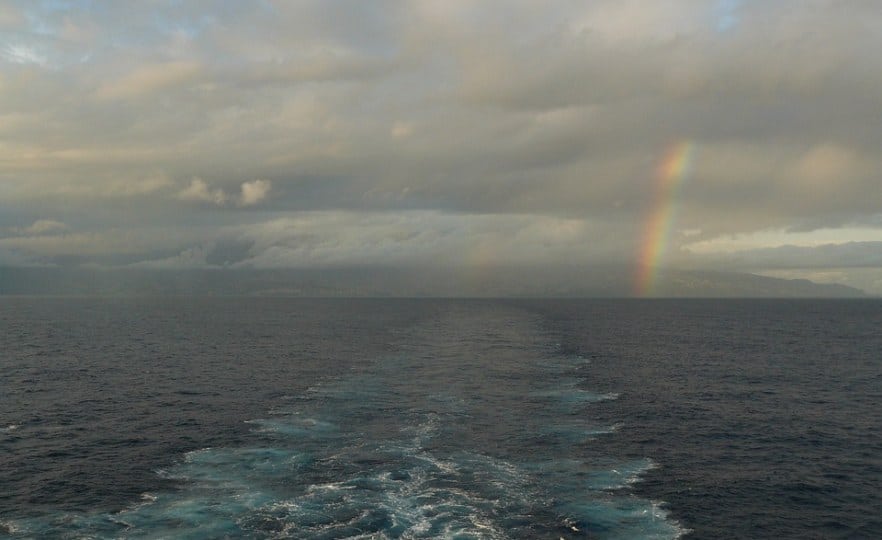
5. How Africa Benefits From the New Historic ‘High Seas’ Treaty on Maritime Biodiversity
Ambassador Lee’s announcement signaled an agreement was reached on the text of a historic Biodiversity of Areas Beyond National Jurisdiction (BBNJ) marine biodiversity treaty, the “High Seas Treaty”.
It was a significant triumph of multilateralism, and concluded a 20-year process, including a decade of negotiations. The BBNJ treaty includes rules for managing ocean life, conducting environmental impact assessments, and establishing marine protected areas in the high seas.
Given that African States hardly access the high seas and with no direct activities related to marine genetic resources (MGRs), why does the BBNJ Agreement matter for Africa? There had been concerns that African States were foreclosed from accessing ocean resources, and a treaty obligating States to adopt conservation measures without fair and equitable sharing of benefits would have been unfair. The BBNJ addressed those concerns and rekindled hope for a healthy ocean, planet, and human life.

6. Fish: Think Twice Before Buying
A new report has highlighted the environmental and ethical impact of the fishing industry. The report, published by the Changing Markets Foundation, exposes the unsustainable fishing practices and poor working conditions that are prevalent in the global fishing industry.
The report calls for greater transparency and accountability in the industry to protect marine ecosystems and workers’ rights. It also encourages consumers to think twice before buying seafood and to choose more sustainable and ethically produced options. The report highlights the importance of certification schemes such as the Marine Stewardship Council (MSC) and the Aquaculture Stewardship Council (ASC) in promoting more sustainable and responsible fishing practices.
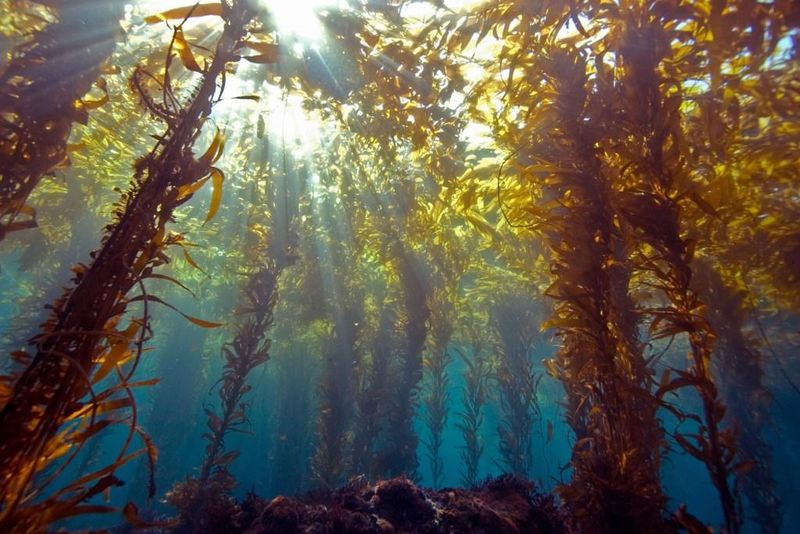
7. What is Seaforestation? Inside the Project to Restore Disappearing Kelp Forests
Kelp forests are rapidly disappearing from the ocean floor due to human activities, estimated to have been lost at a rate of between 40% and 60% worldwide.
To address this issue, scientists at a kelp nursery in West Vancouver, Canada’s Pacific Science Enterprise Centre have launched “Seaforestation.” The project involves producing millions of young kelp in a lab and transplanting them into British Columbia’s coastal waters.
Kelp forests play a vital role in preserving biodiversity, mitigating the effects of climate change, and reducing damage to coastal infrastructure. They function as a habitat for keystone marine species such as herring, salmon, sea otters, seals, sea stars, and urchins.
At the local level, the team aims to replant 5,000 hectares of kelp forests in five years. As ongoing research accumulates, new nurseries can be set up on an industrial scale at the global level.
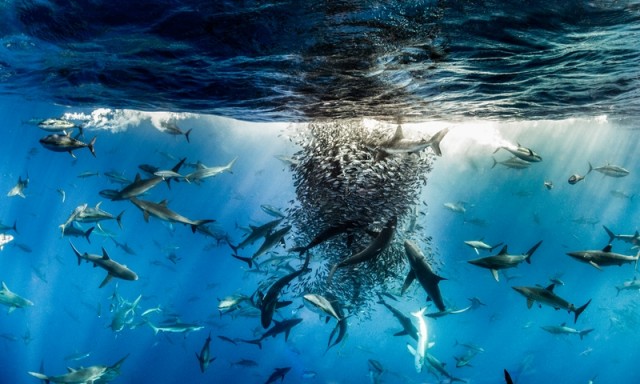
8. Beyond the Numbers: Oregon Program Measures Social Value of Protected Ocean Areas
Oregon’s Marine Reserves Program (MRP) is conducting a groundbreaking study to understand how people value marine reserves beyond just their economic benefits.
The survey will measure how social factors, namely people’s happiness and subjective well-being, are impacted by marine reserves. This will help researchers understand the public’s attitude towards non-economic values, such as the benefit of having protected marine areas for research purposes.
MRP researchers hope the study will provide a more complete understanding of the value of marine reserves, in addition to traditional economic values.
The program, which was established in 2009, currently includes five marine reserves and nine protected areas, covering nine percent of Oregon’s nearshore ocean waters. It is the first long-term nearshore ocean conservation and monitoring program run by the state and promotes cutting-edge research on the economic, social, and cultural dynamics of local coastal communities.

9. Malaysia: Open Sale of Shark Fins in KK Worrying, Says Sabah Minister
KOTA KINABALU, Sabah, Malaysia, The Sabah government is concerned that shark fins are being sold openly here, says Datuk Christina Liew.
The state Tourism, Culture and Environment Minister said she would discuss the matter with the Sabah Wildlife Department and Sabah Parks about the open sale of the dried shark fins in Sinsuran here that was highlighted by tourists. Liew said that Sabah had successfully discouraged restaurants from serving shark fin dishes as well as shark finning as part of its conservation efforts.
Liew stated that the state was supportive of efforts by groups and individuals to promote environmental issues.”We ensure that our sea is clean and also ensure a healthy living environment. We cannot allow for rubbish to be strewn everywhere,” she added.
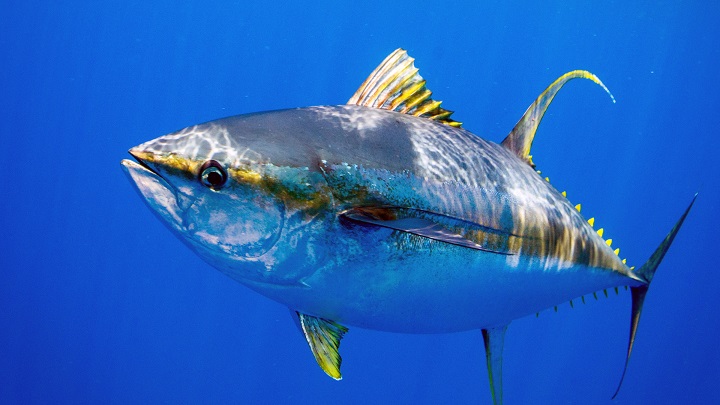
10. European Union’s Collusion With Fishing Lobbies Damaging Indian Ocean Tuna, Say Critics
There are three commercially important tuna species in the Indian Ocean, and all of them are at risk. One of the prickliest issues for tuna fisheries in the world is the use of fish-aggregating devices, or FADs. On 5th February, countries hammered out an agreement on FADs in Mombasa, Kenya. That’s when members of the Indian Ocean Tuna Commission (IOTC) agreed to reduce the number of drifting FADs and to impose three-month closures on the devices.
Critics say this progress has happened despite the European Union attempting to water down ambition on critical measures aided by the vastly disproportionate negotiating muscle of its delegation to tuna talks, including numerous industry representatives.
The bloc’s distant-water fishing fleet reels in the largest share of tuna in the Indian Ocean, most of it taken by massive industrial vessels that use FADs.
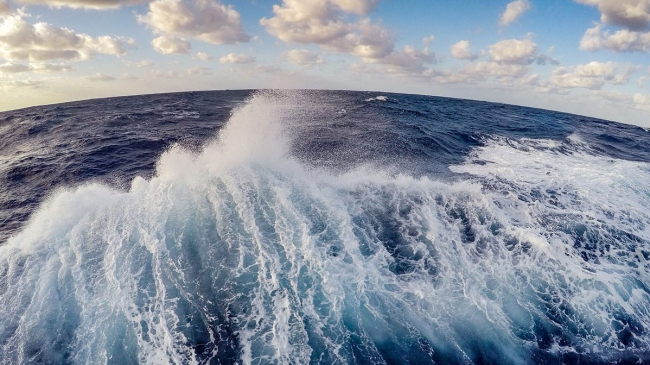
11. India and the Blue Economy
Three interconnected developments have put the spotlight on the “blue economy” – a term that the World Bank defines as the sustainable use of ocean resources for economic growth, improved livelihoods, and jobs while preserving the health of ocean ecosystem: the World Trade Organization’s Agreement on Fisheries Subsidies (WTO’s AOF), the United Nations Convention on the Law of the Sea on the conservation and sustainable use of marine biological diversity of areas beyond national jurisdiction (also called the High Seas Treaty), and the Kunming-Montreal Global Biodiversity Framework (GBF).
These developments are endorsements of multilateralism in an era of increasing geopolitical tensions and fragmentation. Besides the common goal to protect and preserve marine resources, each of the instruments regulate the ability of countries to exploit marine resources.
With increasing interest in commercial fishing, India will need to consider designing subsidies and domestic laws consistent with international obligations.
.
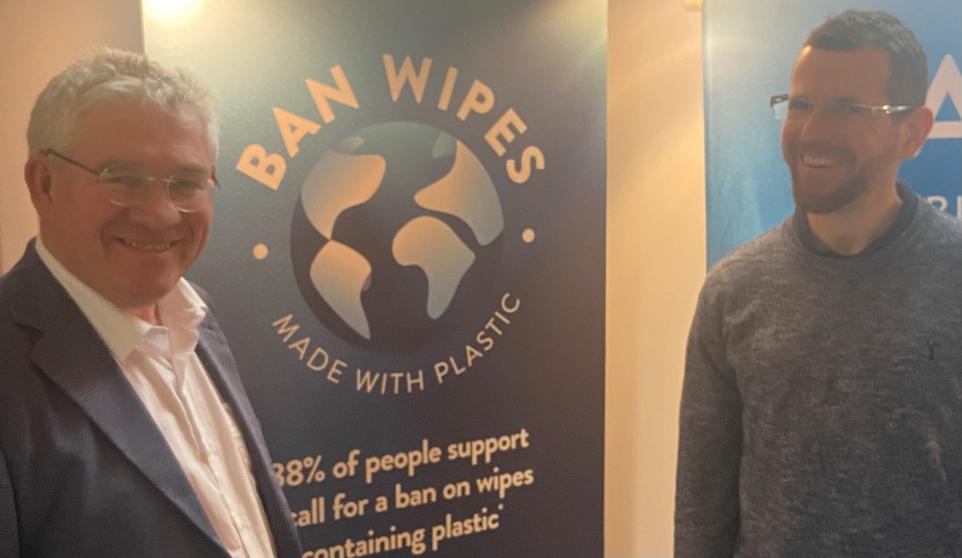
12. Scottish Water Supplier Urges Ban on Plastic Wipes to Protect Waterways
Scotland’s publicly owned water supplier Scottish Water is urging Scotland to ban wipes made with plastic to help protect the environment. The campaign, Nature Calls, is backed by organizations including the Marine Conservation Society, Keep Scotland Beautiful, and Zero Waste Scotland.
Wipes are a common cause of beach pollution, and last year more than 10,000 tons of material were removed from Scotland’s wastewater plants. Many more tons of wipes blocked sewers, causing flooding or being flushed into rivers during storms and heavy rain.
Every year, Scottish Water deals with around 36,000 blockages, and 80% of them feature wipes. The campaign emphasizes the importance of collective efforts by members of the public, communities, campaigners, manufacturers, retailers, and governments to take responsibility for protecting the environment for present and future generations.
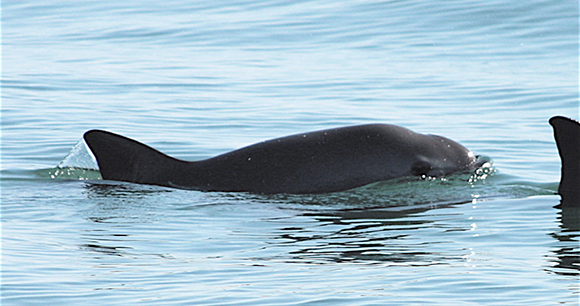
13. U.S. To Decide Whether Mexico’s Failure to Protect Vaquita Warrants Embargo
In a settlement filed in court, the U.S. Department of the Interior agreed to determine whether Mexico has failed to stop illegal fishing and trade of totoaba that is driving the vaquita porpoise’s extinction. The determination could result in an embargo against Mexico.
Interior will decide by May 19 (with a public announcement by June 3) whether to formally certify Mexico under the U.S. Pelly Amendment to the Fishermen’s Protective Act for undermining the effectiveness of the Convention on International Trade in Endangered Species of Wild Fauna and Flora (CITES). If Mexico is certified, President Biden can embargo imports, including seafood and other wildlife, from Mexico.
Illegal fishing continues in the vaquita’s habitat. On March 9, it was reported that as many as 38 vessels were observed in the vaquita refuge. They were likely fishing with deadly gillnet gear.

14. The ‘30×30’ Target and Opportunities for OECMs in Viet Nam
OCEM is an acronym for “other effective area-based conservation measures” and is an emerging and relatively new global term to recognise long-standing, already existing and effective conservation practices.
It is designed to recognise these efforts and have them counted or reported towards 30×30. As such, OECMs is a new term to Viet Nam and the concept needs to be made familiar and put into context.
To start this process, a national consultation process is needed to gain a better understanding of how OECMs can be applied in a national context. Institutionalizing OECMs would not only assist Viet Nam in meeting its international conservation commitments but would also allow it to protect some of the most biodiverse but threatened habitats, such as isolated karst hills, seasonally flooded grasslands, and coastal mudflats that are poorly represented in the protected area system.

15. New Maritechture System Boosts Coral Reef Restoration
In order to restore damaged coral reefs, several groups have been growing hardy varieties of coral in nurseries, and then transplanting them onto existing reef beds.
This process however, is time-consuming so in order to allow it to be carried out on a bigger scale, the Coral Hub team at Saudi Arabia’s King Abdullah University of Science and Technology (KAUST) created a new Maritechture system.
This Maritechture system consists of four components: Coral Tiles, Coral Crates, Reef Nails, and Coral Pods. It is expected to boost coral reef restorations and is being commercialized through spinoff company Ocean Revive. In addition, KAUST also plans to use it in its Reefscape Restoration Initiative at Shushah Island, which is described as the largest restoration project in the world.
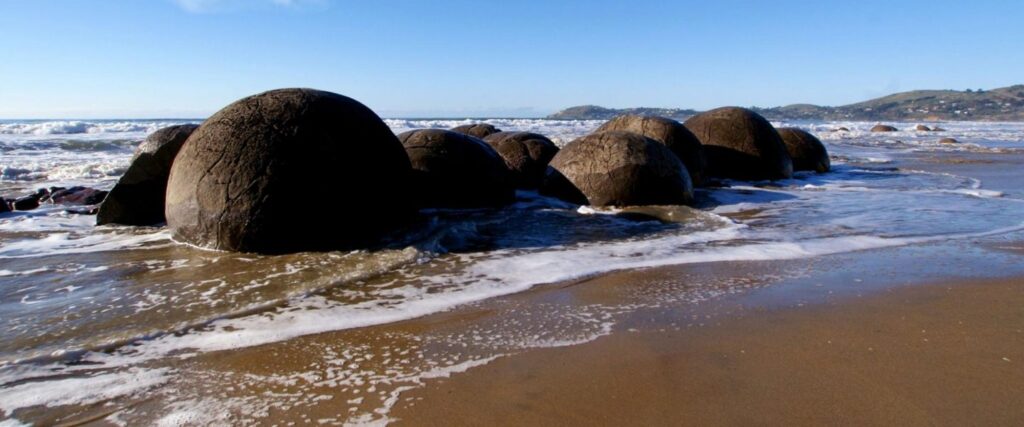
16. Could Pendulums Under Ocean Waves Prevent Beach Erosion?
Climate change is giving us stronger, more destructive ocean waves, which in turn exacerbate already serious coastal erosion issues. With this in mind, researchers are designing a new underwater engineering project called MetaReef, consisting of pendulum prototypes that would absorb underwater energy to curb wave momentum.
Although still in its laboratory design phases, MetaReef is already showing promising results. Once the parameters were fine tuned, the team’s MetaReef managed to reduce wave amplitudes by as much as 80 percent.
Researchers believe MetaReef could yield a solid new tool in protecting both threatened coastlines and valuable offshore structures. Although societal shifts in energy consumption remain the top priority to stemming the worst climate catastrophes, tools like MetaReef could still offer helpful, customizable aids that deal with damage already done to our oceanic ecosystems.
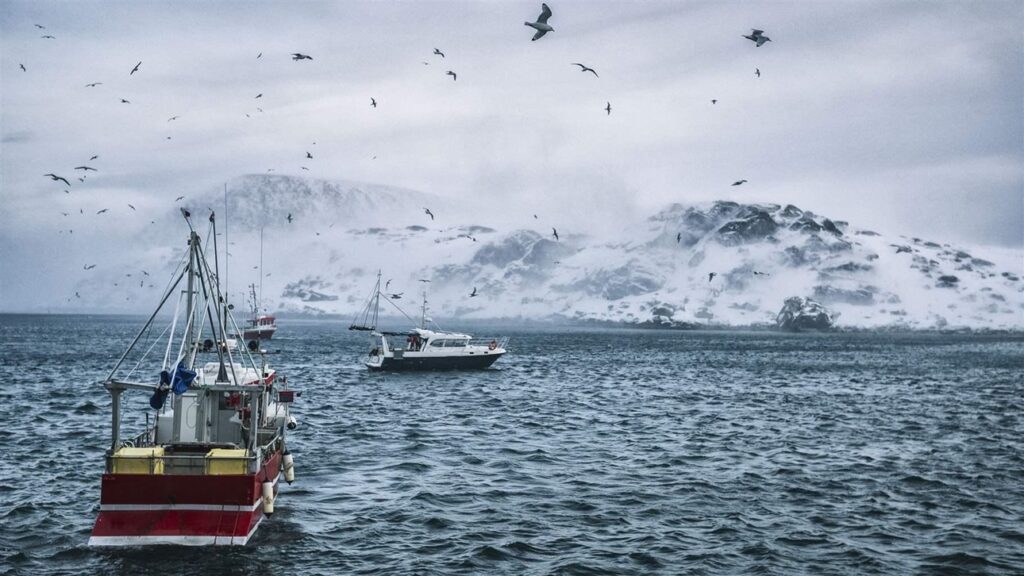
17. 20 Emerging Issues That Could Affect Fisheries Worldwide: Climate Change and Illegal Fishing Threaten Global Ocean
The global trade in fish is worth over $400 billion annually, and healthy fish populations contribute to nutrition and livelihoods in coastal communities around the world. However, this major source of revenue is increasingly threatened by climate change and illegal, unreported and unregulated (IUU) fishing.
The UK’s Royal United Services Institute (RUSI) collaborated with external experts to perform a horizon scan of climate change and IUU fishing. The research identified 20 emerging issues that could affect fisheries-related policymaking for years to come, including shifting fish populations, territorial disputes, and conflicts among fishers.
RUSI demonstrated how climate change will affect every aspect of ocean management, including both legal and IUU fishing. It is now up to governments and international bodies to ensure that climate change does not allow illegal activities to make sustainable fisheries even more difficult to achieve.
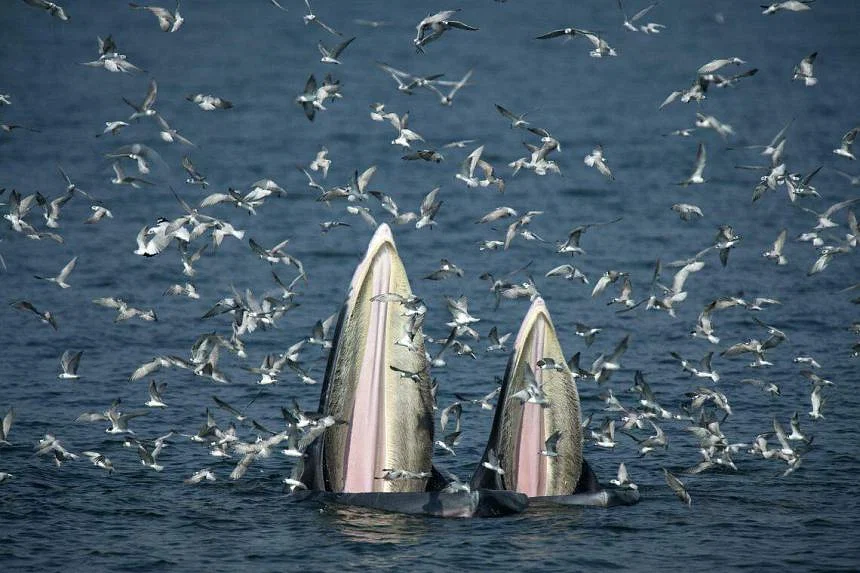
18. Thailand’s Marine Species at Risk of Extinction Despite Government’s Sustainable Tourism Efforts
As international tourists return to Thailand’s coastal and island destinations, concerns over the extinction of key marine species have resurfaced.
The Thai government has begun promoting sustainable tourism after years of unregulated growth that caused environmental destruction. However, corruption, short-term profit, and lack of enforcement continues to destroy marine habitats and threaten wildlife while contributing 20% of the country’s GDP.
Four endangered species, including the Bryde’s whale, the dugong, Irrawaddy dolphins, and pink humpbacked dolphins, are crucial indicators of whether the government’s efforts towards sustainable tourism will be successful. Bryde’s and dugong populations have drastically reduced due to ship collisions, fishing gear entanglement, habitat destruction, and hunting. Irrawaddy and pink humpbacked dolphins are also threatened by overfishing and pollution.
Unless further action is taken to address these threats, these endangered species face an uncertain future.
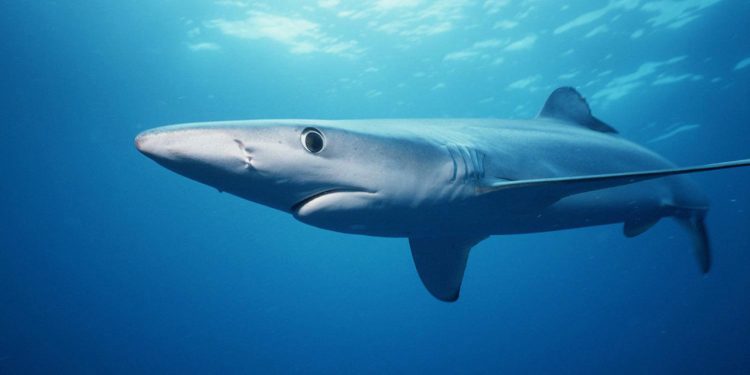
19. Defending sustainable shark fisherie
At a Stop Finning, Stop the Trade Initiative, Europeche general director Daniel Voce discussed how the European Union has never employed the practice of shark finning.
He stated that in all Regional Fisheries Management Organizations (RFMOS), finning is strictly prohibited. Since 2013, all EU vessels must comply with the policy that all fins must stay attached to each shark landed. Additionally, the Port State Measures Agreement requires inspection of all fishing vessels that enter the port to ensure they complied with the law, followed by a catch certification that accompanies the shark and its fins until they reach the consumer.
He states that the EU has the “most advanced policy to prosecute and combat illegal fishing of sharks”. These restrictive regulations have led to a reduction in shark fin trade, with a sales of shortfin mako fins having decreased by 50% since 2003.

20. Plastic pollution is scourge of English coastal region
According to the UK charity Flauna and Flora International, about 11.5 trillion tiny plastic particles called “nurdles” end up in oceans and beaches every year. Nurdles are about the size of a lentil and are used by industries to manufacture plastic products.
Due to their resemblance to fish eggs, sea life and birds often mistake them as food and ingest these toxic pollutants. Rob Arnold, an environmental activist and artist, is one of the individuals that help with cleanup on Cornwall beaches. He created a device to separate plastic waste from natural, and then he uses the microplastics and nurdles in his artworks.
His most notable art piece uses nurdles in a 1.7 meter high sculpture as a “metaphor to what we are doing here to our planet earth. We are polluting our planet….if we destroy it, we have nowhere to go, this is our only home”.
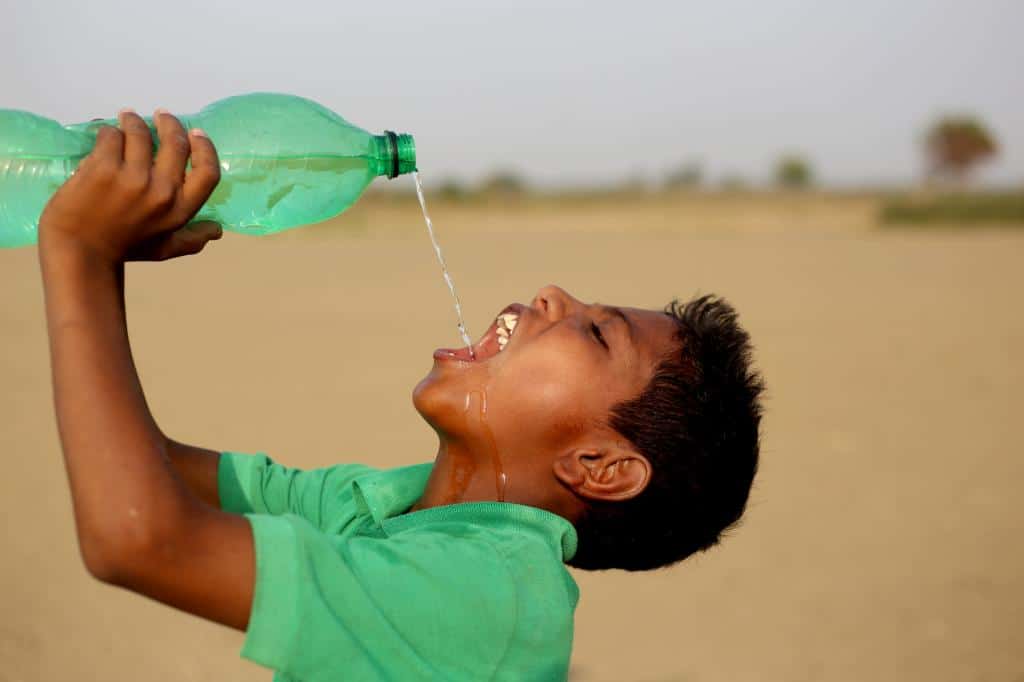
21. Microplastic time-bomb: Why we should not reuse plastic water bottles
When people drink from plastic water bottles, they ingest micro plastics (plastic particles smaller than 5mm). Researchers are worried about the long term effects due to the chemicals used to manufacture these plastic bottles.
These chemicals that are released are known as emerging pollutants and endocrine-disrupting chemicals (EDC’s) which can cause serious health problems. When we ingest these particles, they can reach various body tissues, such as the gut, liver, and lymph nodes. Further on, it could cause lung tissue inflammation, and eventually lead to cancer.
Research is still being conducted about the extent to which these micro plastic particles have on human health, but it is stated to limit the exposure of use. If you do use plastic bottles, it is recommended to not re-use them, minimize shaking the bottle, and store them in a cool and dry place to limit exposure to sun and heat as these elements can lead to more micro plastic release.
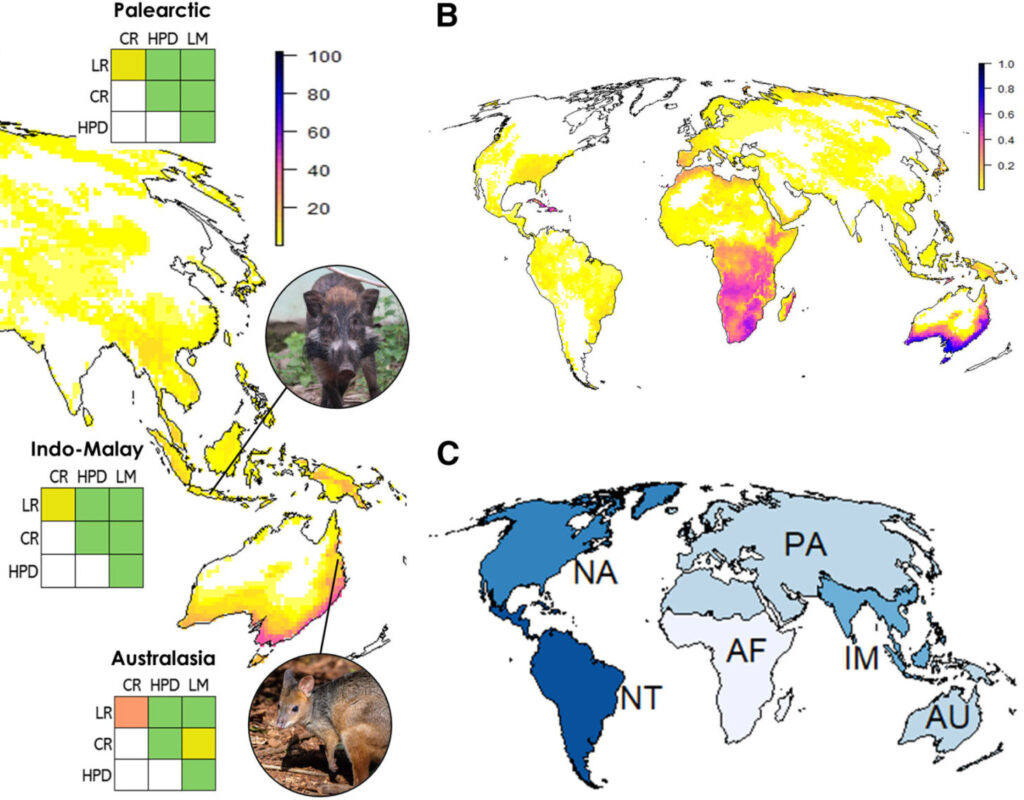
22. New Study Shows How to Predict and Prevent Species Decline Before It’s Too Late
A new study finds that we can use existing conservation data to predict which currently unthreatened species could become threatened and take proactive action to prevent their decline before it is too late.
Researchers looked at three aspects of global change — climate change, human population growth, and the rate of change in land use — together with intrinsic biological features that could make some species more vulnerable. They predict that up to 20% of land mammals will have a combination of two or more of these risk factors by the year 2100.
Larger mammals, such as elephants, rhinos, giraffes, and kangaroos, are often more susceptible to population decline since their reproductive patterns influence how quickly their populations can bounce back from disturbances.
The study suggests that prevention is key and that conservation efforts should not solely rely on protected areas, but also consider how conservation impacts Indigenous communities.
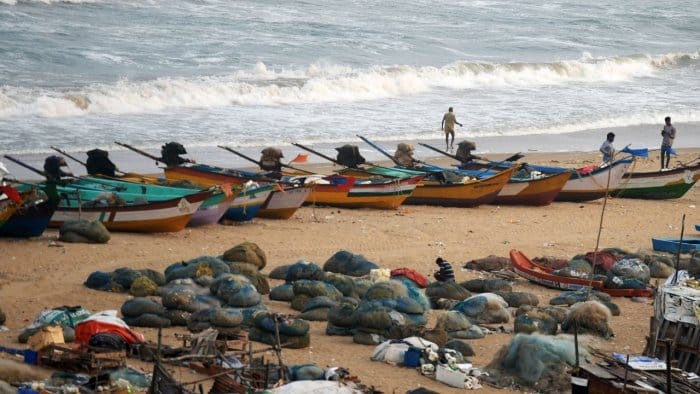
23. India’s Andhra Pradesh Imposes Two-Month Fishing Ban for Ocean Conservation and Sustainable Fisheries
The government of Andhra Pradesh in India has implemented a two-month ban on fishing in the Bay of Bengal to conserve fish and prawn species during their breeding season, according to an official statement released on April 10th. The ban will be effective from April 15th to June 14th and will apply to all mechanized and motorized fishing vessels registered in the state’s territorial waters.
The objective of the ban is to increase the catch for fishermen after the ban is lifted and promote sustainable fisheries for the future. Violations of the ban will result in the seizure of boats and the imposition of penalties under the Andhra Pradesh Marine Fishing Regulation Act of 1994. To enforce the ban, the fisheries department is collaborating with the Coast Guard, Navy, coastal security police, and revenue department to patrol the state’s coast

24. Environmental Groups Sue EPA for Failing to Regulate Industrial Water Pollution
The federal Environmental Protection Agency (EPA) is being sued by thirteen environmental groups for failing to establish water pollution limits for industrial contaminants and for not updating decades-old standards for others. The groups argue that this inaction amounts to giving hundreds of chemical and fertilizer plants, oil refineries, plastics manufacturers, and other facilities a “free pass to pollute.”
These industries reportedly dump billions of gallons of wastewater into rivers, streams, and lakes each year, leading to half of all waterways in the United States failing to meet water quality standards due to pollution. The Clean Water Act requires the EPA to establish pollution limits and review them regularly.
However, many of the standards for these industries were last updated 30 or more years ago, and in many cases, EPA standards do not limit discharges of nutrient pollution or toxics like benzene, mercury, and heavy metals.

25. Delaware Senate Votes to Ban Polystyrene Food Containers and Single-Use Plastics
Delaware’s State Senate voted to largely ban the use of polystyrene food containers and several other single-use plastics, with some exceptions.
The bill prohibits food vendors from providing single-use plastic straws unless requested by a consumer. It exempts hospitals and long-term care facilities from the plastic straw restrictions due to the absence of workable alternatives for many people with disabilities or seniors. Nonprofits, religious institutions, and fire departments are also exempt from the restrictions.
While reducing single-use plastics is seen as a step toward limiting pollution in waterways, backers argue that relying on consumers alone will not remedy widespread plastics pollution and the detrimental health impacts of plastic food containers. In addition, opponents of the bill argue it would be more appropriate to push for polystyrene recycling instead.
The bill passed in the Senate on a near-party-line vote
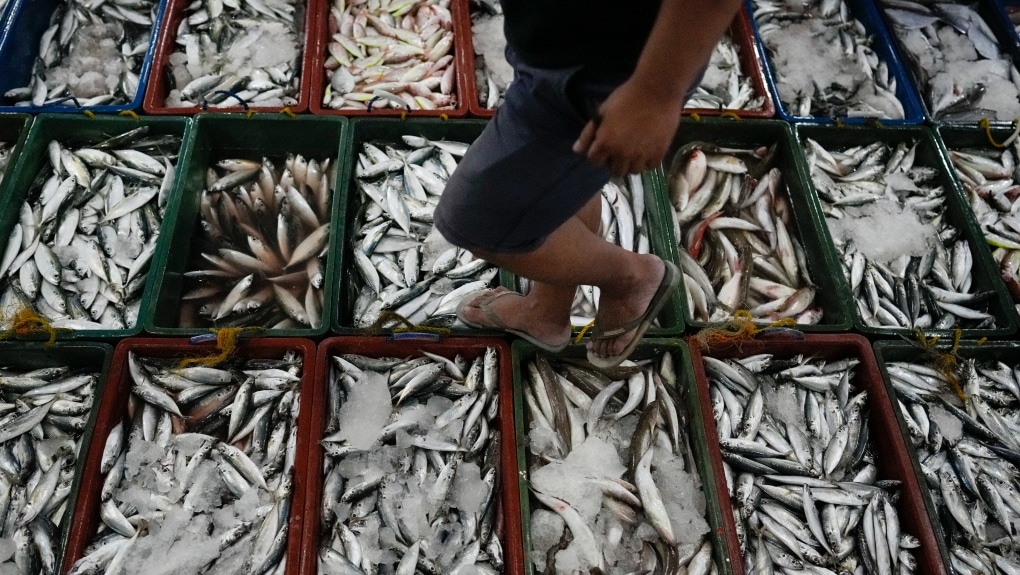
26. Transparency in Regional Fisheries Management: A Call for Fairness and Conservation
Conservation groups and fishing industry players are calling for more transparency from regional fisheries management organizations to protect fish species and ensure the livelihoods of people who rely on healthy fish stocks.
Regional regulators, set up by the UN to measure and conserve fish populations, have been accused of undemocratic practices that favor large, industrial fishers. A coalition of conservationists and market players, including the Ocean Foundation and the Global Tuna Alliance, are endorsing more open access to fisheries organizations’ proceedings so more members of the public can participate in conservation efforts.
Environmentalists and smaller-scale fishers have expressed concerns that large fleets are using methods that are only accessible to vessels capable of venturing deep into the open ocean. This is leading to the depletion of fish stocks for those confined to the coasts or forcing them to navigate dangerous waters unsuitable for their smaller boats
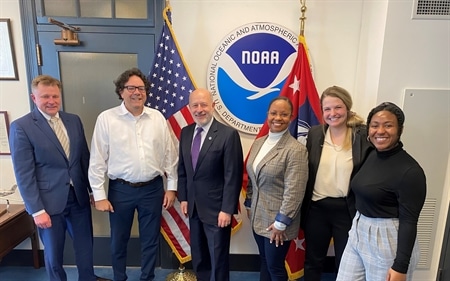
27. NOAA and OceanX Renew Science Partnership to Advance Ocean Mapping and Exploration
On March 9, the National Oceanic and Atmospheric Administration (NOAA) and OceanX renewed a memorandum of understanding to continue collaborating on ocean mapping, exploration, and the advancement of ocean science.
This renewed three-year agreement followed a workshop hosted by NOAA, which allowed the organizations to identify priorities for collaboration, such as sharing best practices for ocean exploration, coral reef research, increasing cooperation on youth education programs, and obtaining environmental genetic samples from the ocean.
NOAA Administrator Rick Spinrad emphasized that partnerships with private sector initiatives like OceanX are essential for accelerating NOAA’s mission and understanding the ocean’s key role in influencing weather and climate, protecting marine ecosystems, and sustainably managing ocean resources. Vincent Pieribone, OceanX co-chief executive officer and chief science officer, expressed enthusiasm for building upon the partnership with NOAA to create a global community dedicated to understanding, enjoying, and protecting the ocean
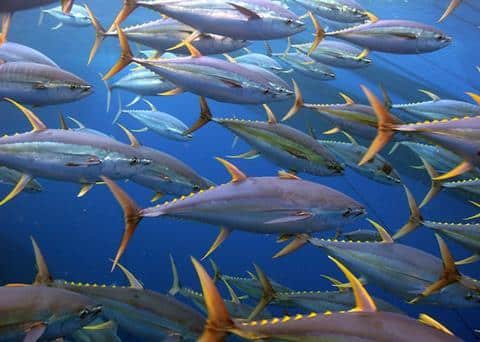
28. EU Releases Proposals for the Conservation and Sustainable Management of Tuna in the Indian Ocean
On April 11, the European Union (EU) proposed four measures to improve the management of Indian Ocean tuna during the Indian Ocean Tuna Commission (IOTC) session. The EU’s proposals include measures to combat illegal, unreported, and unregulated fishing, strengthen the protection of sharks and rays, improve the monitoring of tuna fisheries, and increase transparency in the IOTC’s decision-making processes.
These proposals come in response to growing concerns about the sustainability of tuna stocks in the Indian Ocean, which have been declining in recent years. The IOTC is responsible for the conservation and management of tuna and tuna-like species in the Indian Ocean, and it is made up of 31 member countries, including the EU, which has been actively engaged in promoting sustainable fishing practices in the region.
The EU’s proposals will be discussed at the upcoming IOTC session in May.

29. Coast Guard Seizes Nearly 1,000 Pounds of Shark off Texas Coast
The Coast Guard interdicted a lancha crew on Sunday and seized nearly 1,000 pounds of illegally caught shark in waters subject to U.S. law enforcement off southern Texas.
A Coast Guard Station South Padre Island boat crew, in coordination with Coast Guard Sector Corpus Christi watchstanders and Coast Guard Air Station Corpus Christi aircrews, located and stopped a lancha with four Mexican fishermen engaged in illegal fishing.
A lancha is a fishing boat used by Mexican fishermen that is about 20-30 feet long with a slender profile, having one outboard motor, and is capable of traveling at speeds exceeding 30 mph. Lanchas are frequently used to transport illegal narcotics to the U.S. and illegally fish in the United States’ Exclusive Economic Zone near the U.S./Mexico border in the Gulf of Mexico.
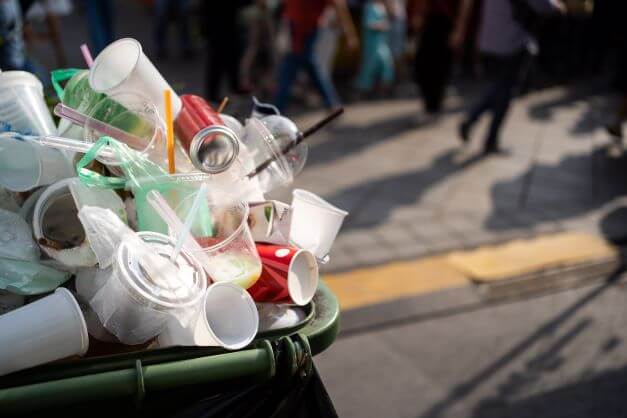
30. England: Oxford City Council announces plans to ban single-use plastics in public buildings
Oxford City Council has announced plans to ban single-use plastics in public buildings by 2024. The council aims to reduce waste and increase sustainability by banning items such as plastic cutlery, straws, and coffee cups.
The ban will apply to all council-owned buildings, including libraries, leisure centers, and offices. The council is also encouraging local businesses to join their efforts to reduce plastic waste. The initiative follows the UK government’s ban on single-use plastics such as straws, stirrers, and cotton buds.
Oxford City Council hopes to inspire other councils to follow their lead and make similar commitments to reducing plastic waste




